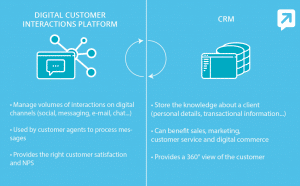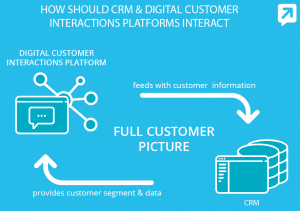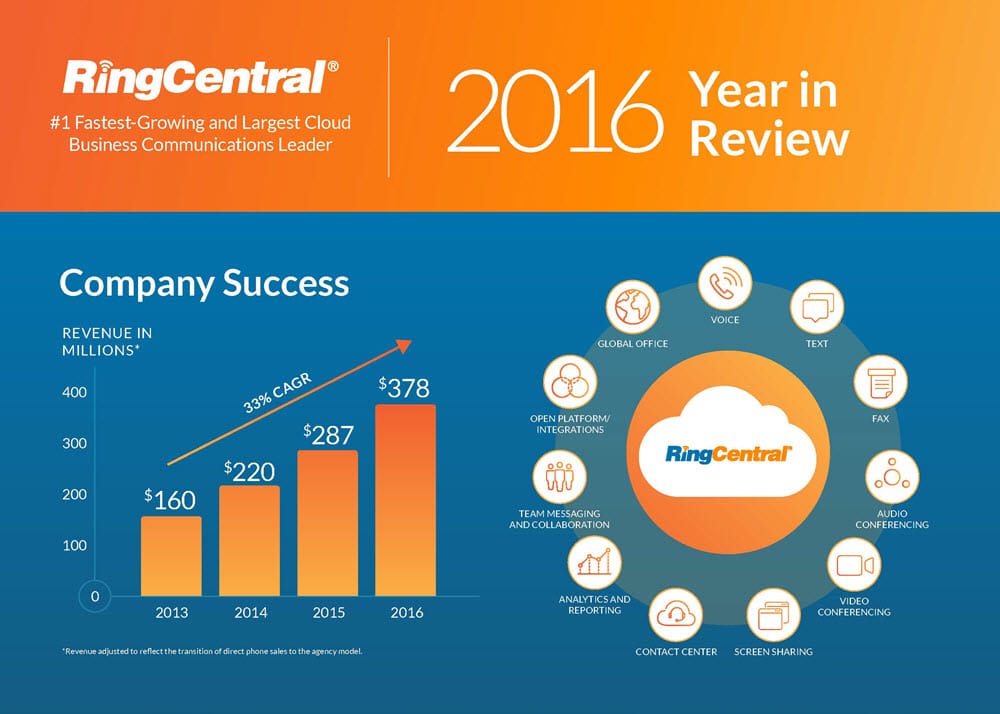CRM software and Digital Customer Interactions Platforms are two of the main tools used by companies to manage relationship with their clients. After noticing that there is some confusion around the purpose of each tool, we have decided to launch a new series explaining it.
To help us, we have called upon 5 international experts who will introduce these tools, their benefits and how they can be integrated to enrich customer care.
Before explaining in details both platforms, here is a quick overview of their differences:

“Digital Customer Interactions Platform is used to receive and respond to messages from various channels while CRM is used to store the full customer view.”
Jeroen Kuiper, General Manager, CRM & Customer Care Expert, AllSecur, Netherlands
1 . What are CRM and Digital Customer Interactions Platform?
Introduction of both tools
CRM
CRM is an acronym standing for Customer Relationship Management. According to Gartner’s definition, CRM is:
“a business strategy that optimizes revenue and profitability while promoting customer satisfaction and loyalty.”
To achieve this goal, a CRM software is used to store the full knowledge available about a client. By giving companies a better knowledge of their clients, it helps them maintain good relationships.
The customer information can cover several areas, including :
- Personal information: name, birth date, e-mail address, postal address, interests….
- Engagement information: last interaction with the company, preferred mode of communication
- Transaction information: products or services previously purchased, time of purchase, prefered payment method, status in the loyalty program
In short, the CRM stores the full knowledge available about customers.
Digital Customer Interactions platform
The purpose of a Digital Customer Interactions platform is to manage volumes of interactions on digital channels. It enables companies to centralize all channels (e-mail, messaging, chat…) in a single platform.
Such platform helps agents answer customer enquiries more easily and efficiently It enables them to manage and monitor customer interactions. By unifying digital channels, Digital Customer Interactions platforms allow companies to have a single view of customer service activity, in terms of statistics, conversation history and activity management.
Difference between them
As both tools are linked to customer service, the difference between them may need to be clarified. On one side, a CRM software is used to store data about customer and prospects in a central location. It can exclusively be used for identified customers, already known by the company.
On the other side, a Digital Customer Interactions platform is used to treat messages from customers on a variety of channels. It can be used to communicate with anonymous users, who don’t have any data history in the company.
| « Digital Customer Interactions Platform is used to receive and respond to messages from various channels while CRM is used to store the full customer view. » | |
|
Jeroen Kuiper |
|
2. Get a full view of your customers with a CRM
After this quick overview of both tools, let’s focus on CRM software and their benefits for organizations.
First of all, it’s important to note that any company can benefit from using a CRM as it helps get a better understanding of customers. CRM software are very advanced and flexible tools that can be customized to suit specific needs of companies. The use of such of software may vary greatly between organizations, depending on several factors: the company activity, its organization, its size…
A common belief is that a CRM is a tool exclusively used by sales team. They are indeed some of the main users, but any department dealing with customers can make use of CRM data. According to Gartner, CRM software can benefit the four following segments within a company : sales, marketing, customer service and digital commerce.
| “Customer service benefits greatly from accessing a full customer profile when responding to enquiries.” | |
|
Jérémie Leclerc |
|
A CRM software helps achieve the following goals :
- Improve Customer Satisfaction
- Improve processes and productivity
- Automate reporting, dashboards and predictive analytics
According to a study by Trackvia, CRM can improve customer retention by as much as 27%. (More on how to calculate your customer retention rate here.)
3. Manage messages efficiently with a Digital Customer Interactions Platform
All companies in any given industry can benefit from using such platform. It helps companies better understand what customers say about them and reply to their enquiries.
This kind of platform can manage all types of digital channels: social media, messaging, e-mail, live chat… Any digital channel used by a brand can then be managed through this platform.
Its features help manage digital customer interactions more efficiently:
- Team management: thanks to a single interface, teams can be organized by competence instead of channel, making it easier to spread the workload and manage surge of traffic.
- Routing features: a Digital Customer Interactions Platform qualifies and routes the messages received based on custom criteria
- Identify customers: if a customer contacts a company on several channels (for example, by e-mail and Twitter), the platform helps companies answer him once on the right channel.
- Access KPIs: measure the customer service performance and monitor the activity.
| “A good platform can help you understand the patterns of your incoming volumes and what triggers the spikes.” | |
|
Cédric Blum |
|
4. The perfect integration
After providing a good overview of both tools and their respective features, we will focus on how they can interact. CRM software and Digital Customer Interactions Platforms are related to customer service but serve different purposes. They are complementary tools and adopting both will help companies to maintain excellent relationships with their customers.
| “The integration helps you answer quicker by knowing your customers better.” | |
|
Henri Villebrun |
|
The integration must rely on the strengths of each tool : a CRM software provides a 360° view of the customer while a Digital Customer Interactions Platform is relevant to manage volumes of interactions efficiently.
The integration of both tools will ensure that any department could access the full information about a customer to communicate with him in the most relevant way. Each tool collects different type of data: CRM collects transactional data while Digital Customer Interactions Platform acts as an interface collecting conversational data.

In the perfect integration scenario, the Digital Customer Interactions Platform can feed the CRM with customer information (prefered channel, topic of interest, social identities). When communicating with anonymous users, it will make them compatible with the CRM. At the same time, it will benefit from data stored in the CRM, such as customer segment, to better prioritize and route messages.
| “The agent then has access to a full picture of the customer, helping him better engage and solve his problem more efficiently” | |
|
Stéphane Lee |
|
To learn more about the integration, check out our infographic introducing 3 of its main benefits.
The adoption of both tools will then contribute to an enhanced customer experience, by helping them to better engage with their clients. By having two separate and specialized tools, companies will make sure to have reliable partners to stay up to date with the market evolutions and customer care new challenges.
Originally published Feb 10, 2017, updated Apr 18, 2021





